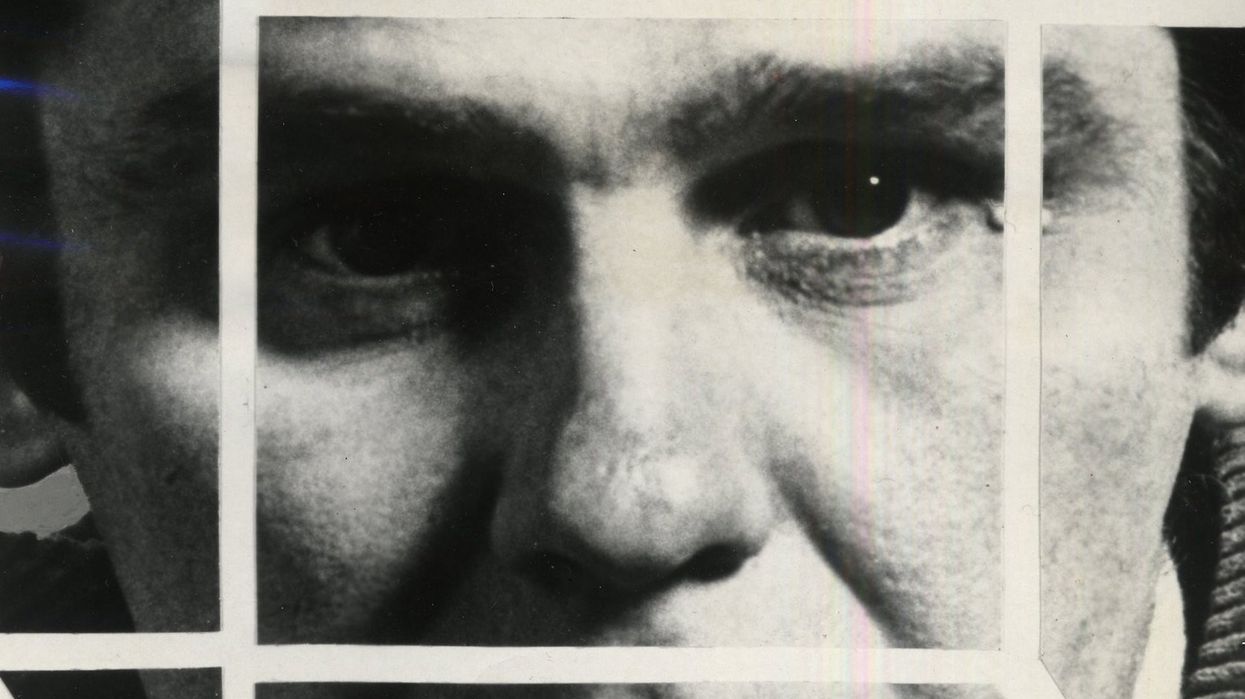Watch: 'The Cube,' Jim Henson's Trippy, Existential Short Film
The Cube, a rarely-seen (and kind of disturbing) film by beloved Muppets creator Jim Henson foreshadows his later work.

Before The Muppets took over the world, Jim Henson had already begun to make a name for himself in Hollywood. In 1966, his short film, Time Piece, was nominated for an Academy Award for Best Live Action Short Subject. Henson and collaborator Jerry Juhl began developing other live-action TV projects, including The Cube, an hour-long, existential black-comedy about a man trapped inside a white room with no idea how he got there, no shortage of bizarre visitors, and no straight answers. It was shown twice, on television, premiering in 1969 on a short-lived anthology series, NBC Experiment in Television (because the '60s).
Time Piece, an experimental nine-minute short, premiered at the Museum of Modern Art (along with the French film, A Man and a Woman). In a piece for The Atlantic, Luke Epplin says thatTime Piece examines "the alienation and desperation that an Everyman (played by a deadpan Henson) experiences as time slips past him." The film went on to be nominated for an Oscar at the 38th Academy Awards, and, in a nice bit of synchronicity, A Man a Woman would end up winning Best Foreign Language Film and Best Original Screenplay at the Oscars the following year.
The nomination opened more doors, and, while The Cube was a far more narrative project than Time Piece, it was still several miles west of realism. According to an NBC press release from the time, "the setting is a small, doorless and windowless chamber made of glowing, translucent plastic in which a young man appears to be trapped....he plays captive host to a zany series of diverse visitors who are able to gain access to his cell-like compartment, but whom he cannot follow when they leave," adding that the film "dramatizes the complex, baffling problem of reality versus illusion" (and I have to agree with NBC there—it is a complex, dare I say even baffling, problem.)
"The Cube dramatizes the complex, baffling problem of reality versus illusion."
The most fascinating thing about these early Henson projects is that, in them, we can see a young artist finding his way. It would still be a few years before Henson, then in his mid-20s, would find fame and fortune (and ultimate artistic fulfillment) with The Muppets and all their attendant projects, and it's fascinating to see how the young filmmaker approached his fundamental concerns (different worlds, "reality versus illusion", surreal comedy full of non sequiturs). These concerns, of course, would find their full expression not in the "real" world, but in the world of puppetry. The Cube is an intriguing look at the birth of an artist, and proof that every artist has to find his or her way through trial and error, even if, like Henson, they seem in retrospect to have appeared fully formed.
Source: Independent Culture











